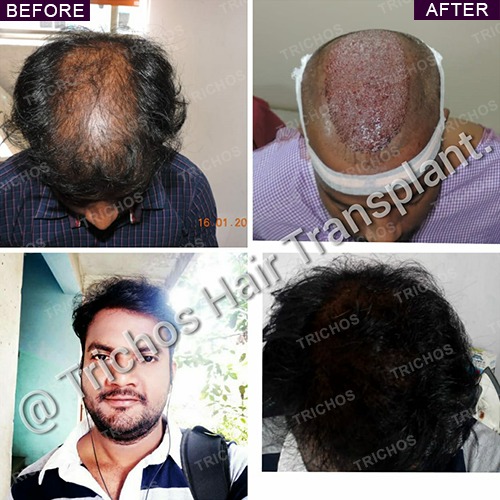Tattoos Vs Scalp Micro Pigmentation: Which is Good?
There is much confusion between tattoos and scalp micro pigmentation (SMP) as many tend to think that they are the same. But, are they same? Is SMP as painful as tattoos? Which is better as a camouflage medium for thinning hair: SMP or tattoos?
Will SMP results be similar to what one gets through tattoos that sometimes fades into bluish and greenish tint?
This educational video answers all your queries as Dr John Watts – one of the Best Hair Transplant Surgeons in Hyderabad – enlightens the viewers about the various aspects and differences between the two.
“In general, SMP is undertaken when is battling thinning hair and there is not much scope for hair transplant procedure due to lack of sufficient donor hair. It is also used to artistically arrest the receding hairline using high-quality permanent colours that camouflage by accurately matching their hair colour,” explains Dr John Watts.
Tattoos Vs Scalp Micropigmentation:
Though both can be used to camouflage hair, how is tattooing different from the scalp micro pigmentation process when it comes to inflicting pain? Explaining the scientific process behind it, Dr John Watts says that there are three layers to the scalp: epidermis, dermis and hypodermis.
“In tattooing, there are greater chances of experiencing pain as the process can touch the dermis and hypodermis region of the skin. The tattoo artiste can injure the innermost layer ie the hypodermis and this may make it painful as it leads to inflammation when dermal plexus get affected, disrupting the blood supply to the hair follicle,” informed Dr John Watts.
In contrast, scalp micro pigmentation takes place at the superficial layer of the scalp ie the epidermis. This makes it a painless process.
There is one more major difference between tattooing and the SMP process as the former process can lead to the fading away of the pigmentation from black to bluish to greenish tint after two months.
Whereas in SMP, the pigment can stay much longer though 2-3 sessions may be required to give the artistic hair design a natural look on the scalp. “The SMP process can perfectly camouflage the natural-looking hair when the designs are done with perfect planning,” adds Dr John Watts.
Scalp Micropigmentation: Advantages
There are a host of advantages in opting for an SMP rather than tattooing as a camouflage to cover one’s thinning hair or when one is unhappy with the results one obtained from a hair transplant procedure.
If one wants dense-looking hair and it was not possible with a hair transplant procedure due to a lack of sufficient donor hair, SMP can complement that. The same is true with hairline design, which can be redesigned with SMP to give a different natural look.
The SMP procedure also offers a distinct advantage over tattooing: the former can be removed easily, while the latter can’t be removed without damaging the skin. Though a costly laser procedure can be performed to remove a tattoo, it may damage the skin and its smoothness can get affected.
There is one disadvantage though as SMP does not provide a permanent effect. “One disadvantage with SMP is that there may be a need to retouch the pigment after 2-3 years as it may start fading,” informs Dr John.
However, SMP offers a very good alternative for those who seek dense looking hair for those who cannot get it through a hair transplant procedure due to insufficient donor hair. Those who are battling thinning hair conditions too can opt for SMP in addition to wearing bio fibre or hair patch as alternatives.
“The other key advantages that SMP offers include permanent eyebrows, 3-D eyebrow makeup and permanent eye lining,” informs Dr John Watts, while urging viewers to share the video for awareness.
Trichos is the home of the best hair experts in Hyderabad, offering a range of hair loss and transplant solutions. Call us today!
Book an appointment for expert guidance


About
Causes
Alopecia
Restoration
Procedures
Locations
Disclaimer: While hair transplants are generally safe and effective, as with any medical procedure, there can be minimal and temporary side effects based on specific or underlying medical condition of the individual patient. Please consult in person with our qualified medical team at Trichos for a thorough assessment of your specific condition and individualized guidance on the potential risks and benefits associated with our hair restoration treatments.
Learn more about Medical Consent for Surgeries.



